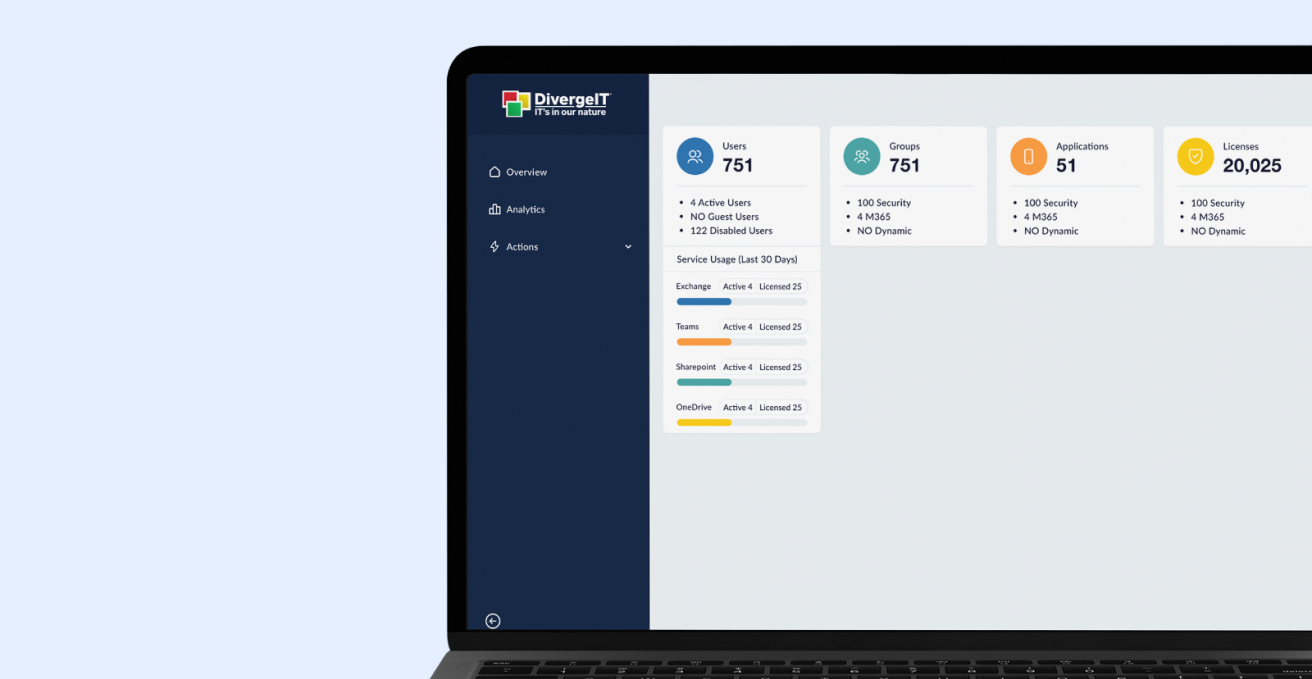Crafting a
Scalable
Design System for
DivergeIT’s
Success

We helped DivergeIT create a unified, responsive design system that streamlined their development process, ensuring consistent user experiences and faster delivery across their suite of MVP microservice applications.
Project Overview
DivergeIT needed a foundational design system for their suite of MVP microservice web applications.
The project focused on auditing existing products, identifying design inconsistencies, and delivering the first phase of component designs within a month.
This design system would serve as a foundation for continued collaboration, refinement, and scalable development.


.jpg)
Our Process
Audit & Research
We began by conducting an audit of existing applications to identify design gaps and inconsistencies.
We also researched industry standards and competitors to inform the component selection process.
Component Prioritization
We worked closely with the team to prioritize components, breaking them into phases for structured and iterative development.
We outlined the use cases for each component to ensure clarity.
Design & Delivery
We created responsive wireframes for each component, focusing on usability across devices.
Delivered developer-annotated designs with detailed specifications for each component.
Compiled use case documentation alongside the component library for easy implementation.
The Challenge
DivergeIT’s existing applications lacked design consistency and usability. They needed a scalable design system that could be applied across their suite of applications, ensuring uniformity and enhancing user experience.
Key challenges included:
- Design inconsistencies across applications.
- Lack of a centralized, reusable component library.
- Ensuring the design system would be scalable and adaptable to future products.

.jpg)
.jpg)
The Outcome
Phase 1 successfully identified all major inconsistencies and prioritized the most important components for design.
The first set of components was designed, ensuring they were responsive and ready for implementation.
Documentation was provided for both developers and designers, facilitating a seamless handoff and integration process.
The design system provided a scalable foundation for future iterations, helping DivergeIT streamline its product development and achieve consistent design quality across all applications.



